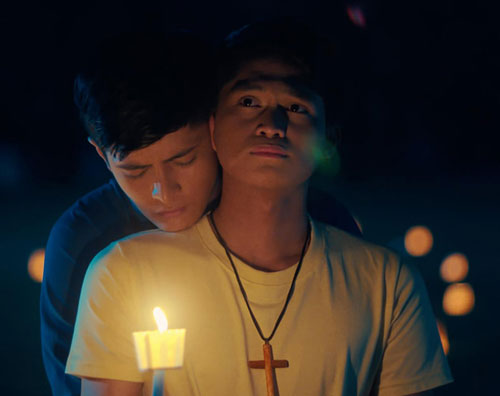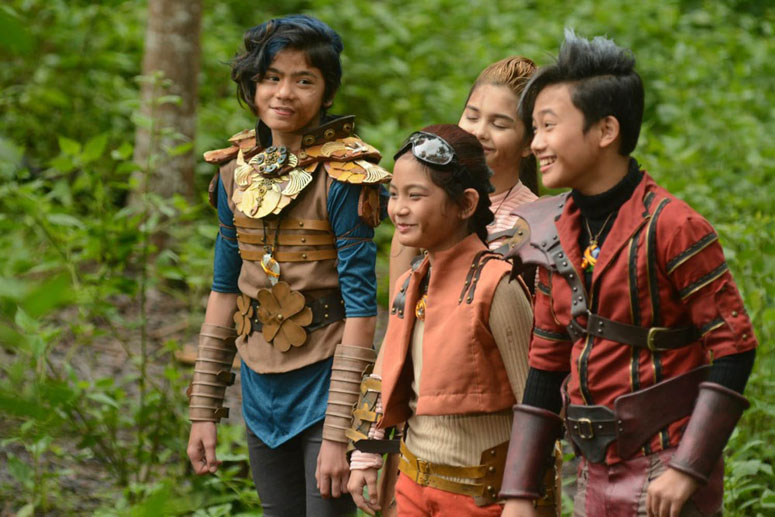Can an old festival learn new tricks?
This past decade has been particularly chaotic for the already controversial Metro Manila Film Festival (MMFF). Amid constant criticism of its selection processes and the involvement of the Metropolitan Manila Development Authority (no, really, why is this government agency in charge of organizing what should be a cultural event?), the festival now has a reputation for showcasing less-than-stellar films from the same popular faces.
MMFF drama seemed to hit its peak after 2016, when much-needed reforms for the festival were introduced — and then were almost entirely scrapped right after. Even the short-lived MMFF New Wave section, which dedicated screenings for a selection of smaller independent films, quietly went away after 2015. The MMFF had made it clear that it had no real plans to change.
But with the COVID-19 pandemic now making it impossible for film festivals to be held in public, the MMFF was forced to change (much like this year’s editions of QCinema and Pista ng Pelikulang Pilipino). This most recent festival had to trade in packed cinemas and its extravagant Parade of Stars for an expanded slate of films and online video on demand.
And for a while, it seemed like this MMFF might be different after all: limited opportunities for marketing seemed to place all the films on a more level playing field, while the absence of staples such as Vice Ganda, Vic Sotto and Coco Martin seemed to promise the inclusion of new faces.
So to break down what this recently concluded festival accomplished (or failed to accomplish), here are some things from MMFF 2020 that we’d like to keep, and some things we never want to see again.
KEEP: Progressive and/or critical views on sexuality and gender norms
The two best entries at the 2020 MMFF — Antoinette Jadaone’s Fan Girl and Dolly Dulu’s The Boy Foretold by the Stars — couldn’t be more different, but their shared frustration with toxic traditional masculinity makes each film’s central relationship so much more interesting. In Fan Girl, not only does Jane (Charlie Dizon) discover that heartthrob actor Paulo Avelino (playing himself) is nothing like the romantic he’s made to look like onscreen, but Jadaone illustrates how our tolerance of aggressive, irresponsible men who make empty promises perpetuates a cycle of abuse that can make its way from our homes to the highest office in the land.

Meanwhile, in The Boy Foretold by the Stars, Dominic (Adrian Lindayag) is simply allowed to be a gay, femme protagonist exploring his own emotions — while being played by a queer, femme actor. It opens the door for more-authentic LGBTQIA+ representation that doesn’t only rely on colorful drag outfits or loud, boisterous comedy. These are perspectives we simply don’t see at the MMFF nearly enough.

ABANDON: Mean-spirited comedy
On the other side of the coin, entries such as Pakboys: Takusa and Mang Kepweng: Ang Lihim ng Bandanang Itim returned to the long-empty well of belittling others, passing off arrogance as humor, and using transphobia and violence against women as punchlines. Nothing about these films makes them qualified to compete at a festival ostensibly marketed as a family event. This type of comedy was lazy and outdated then and it’s flat-out unacceptable now.
KEEP: Movies that are actually for young people
At a typical MMFF, “family-friendly films” still tend to be aimed mainly at adults, with lighter elements to keep the kids distracted. But at the 2020 MMFF, Christian Acuña’s Magikland was clearly designed for children — not only in its fun, mobile game-inspired aesthetic, but in how it empowers a group of competent kids to be the real stars of their own action-packed blockbuster. And The Boy Foretold by the Stars provides a safe space, especially for young gay viewers — telling a relatable teen-romance story without ever trivializing its characters’ feelings. These two films are far more interested in affirming the dignity that young people already possess, instead of just giving them empty escapism, and that makes them valuable.
ABANDON: Insensitivity to experiences of sexual assault
You can’t just bring up sexual assault in a film, only to dismiss it with a wave of the hand and without sympathy for real victims. Suarez: The Healing Priest raises the issue of minors being molested by priests, but the movie only seeks to absolve its titular clergyman, with no other comment made about this stain on the Catholic Church. Isa Pang Bahaghari not only dismisses an assault perpetrated by one of its main characters, but has an entire subplot revolving around a false rape allegation. It is absolutely neither the time nor the climate for a story like this.
KEEP: Advancements in visual effects
While the modern MMFF isn’t known for telling groundbreaking stories, it’s become something of a showcase for VFX-heavy Filipino films. Entries like Magikland and The Missing don’t have perfect visuals by any means, but they certainly hint at what our post-production artists would be capable of, if given more support. The Missing makes the effort to do more with its ghosts than just powdered faces and white cloth. And Magikland gives us all the staples of a fantasy world — dragons, magic, creepy visions of the potential future — while remaining distinctly Filipino.

ABANDON: Lazy subtitles
Even a film as fresh as Fan Girl can cause unintended harm in overlooked places. In several instances throughout the movie, the word gago is needlessly translated into English using an ableist slur, even if these two words don’t correspond to each other at all, and even if gago barely requires translation to be understood. Whoever was in charge made the misguided decision to settle for an unrelated, harmful insult, making our beautifully all-encompassing gago far crueler than the film needed it to be.
ABANDON: Politicians and political enablers involved in productions
Unfortunately, the Filipino film industry continues to work especially closely with sitting government officials and prominent members of political dynasties — all of whom have no business endorsing themselves or their families by appearing in movies. This unfortunate trend continued in 2020, with films like Tagpuan and Coming Home featuring politicians in the lead roles — with the latter film even being directed by the same person who made Bato: The General Ronald dela Rosa Story, just as dela Rosa was running for senator.
KEEP: Calling out tyrannical world leaders
This is admittedly a very small thing — and our films absolutely need to strive to do more beyond quick images of our president (as in Fan Girl) or casual mentions of the United States president (as in Tagpuan) — but it still feels like a lot, given how the MMFF is still organized by a government agency. As far as we’re concerned, a festival with this much reach and influence has a responsibility to speak to truth to power. And it deserves to be in the hands of those who don’t simply protect the reputation of the powerful.
So did things change? Not really. The MMFF has largely remained its stubborn, traditional self, even with all the potential for innovation offered by this new online platform. Still, a few strong entries managed to show us the possibility of a more exciting MMFF that we might have again one day.


